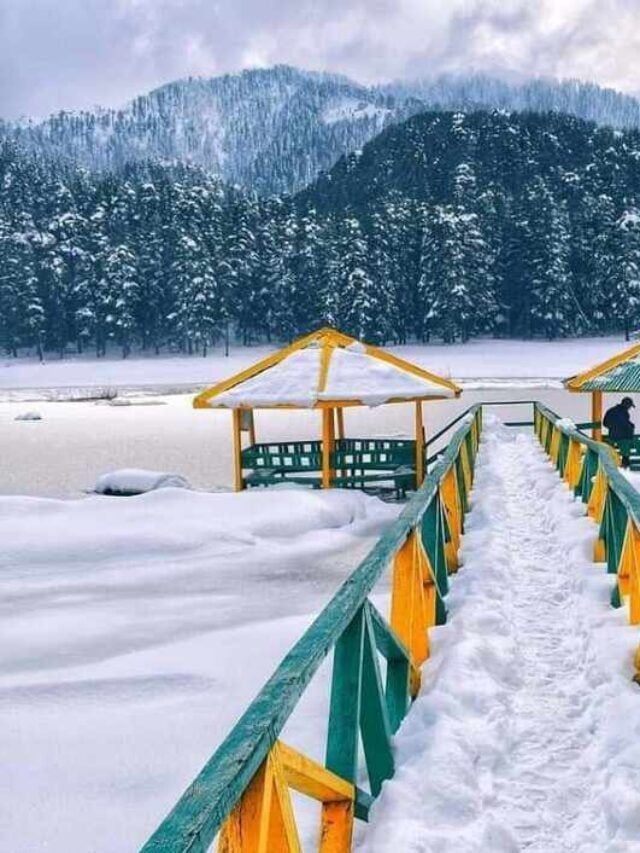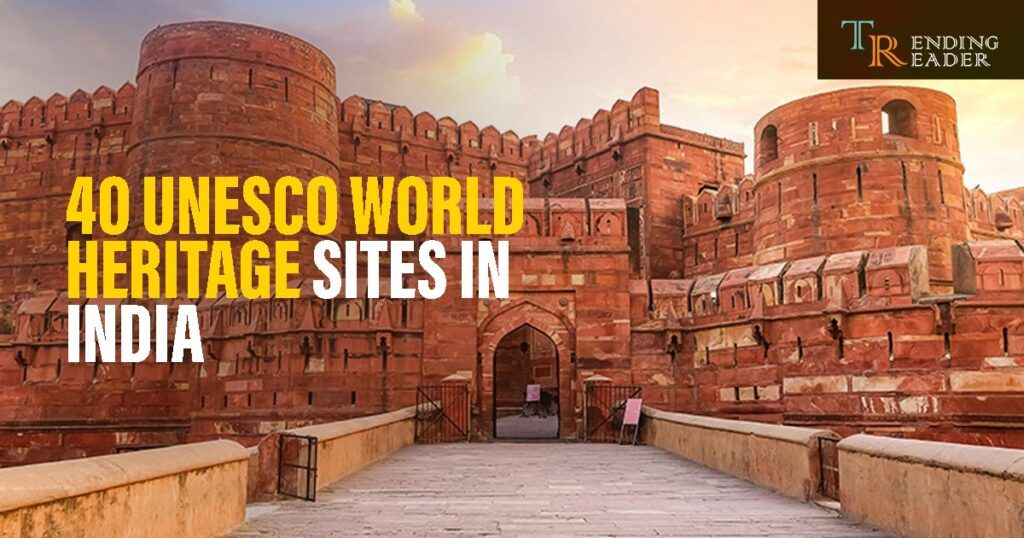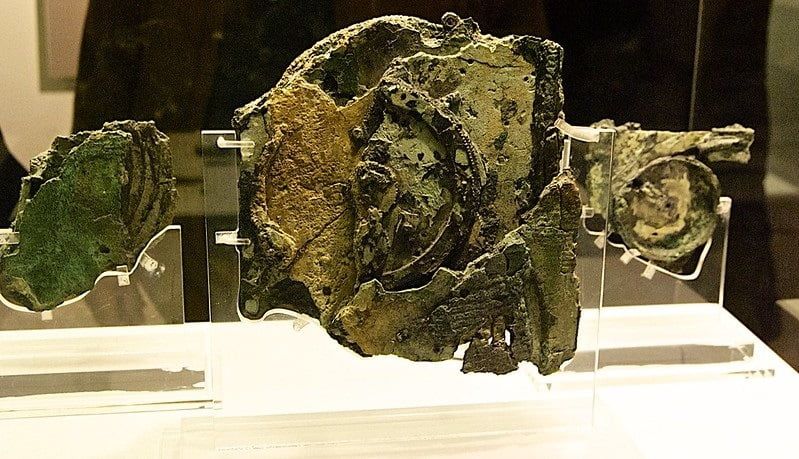There are almost 40 UNESCO World Heritage Sites in India with Dholavira and Ramappa Temple being the latest addition to the list. Now, we have a total of 40 UNESCO World Heritage Sites in India after the addition of these two.
A 44th session of the UNESCO World Heritage Committee happened in Fuzhou, China. It declared the Kakatiya Rudreshwara (Ramappa) Temple in Warangal, Telangana, and Dholavira, a Harappan-era city in Gujarat, as UNESCO World Heritage Sites during its most recent session. Here is a list of UNESCO World Heritage Sites in India that have exceptional universal value!
40 UNESCO World Heritage Sites In India
Maharashtra
1. Ajanta Caves

Ajanta Caves in Aurangabad, one of India’s oldest heritage sites, is undoubtedly marvelous. This 2000-year-old Buddhist site in Maharashtra consists of 29 intricately carved rock caves.
2. Chhatrapati Shivaji Terminus

The mammoth-sized Chhatrapati Shivaji statue at CST is a sight to behold and is one of Mumbai’s most well-known landmarks.
3. Ellora Caves

Ellora Caves depicts the timeless religious harmony and artistic dexterity of a bygone era through a blend of Hindu, Buddhist, and Jain cults.
4. Victorian Gothic and Art Deco Ensembles

These two important ensembles of Mumbai are a fine example of modernization that happened in the city of dreams during the 19th and 20th centuries, with a vast variety of 19th-century Victorian neo-Gothic public buildings and 20th-century Art Deco.
5. Elephanta Caves
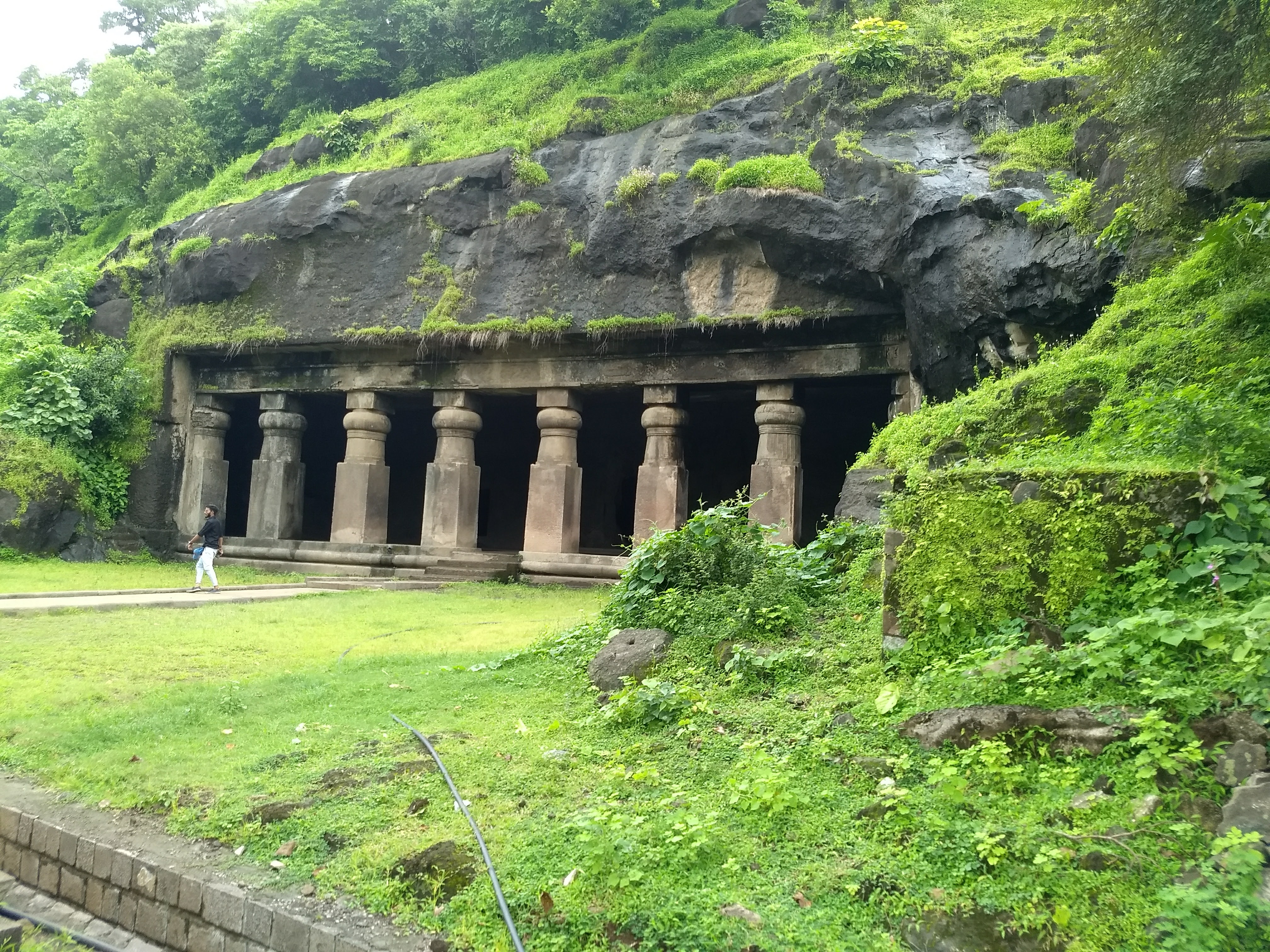
This stunning Maharashtra world heritage site shows Lord Shiva’s cult adoration, with exquisite carvings and colossal structures. Elephanta caverns were designated as a historic site in 1987 because of their cultural and religious significance.
Madhya Pradesh
6. Rock Shelters of Bhimbetka

The murals on the walls of the 750 caverns dispersed over seven hills bear a striking resemblance to the tribal cultural traditions of the twenty-one communities adjacent to the site.
7. Sanchi Stupa

This huge complex, which includes monolithic pillars, palaces, temples, and monasteries, was an important Buddhist center until the 12th century A.D.
8. Khajuraho Group of Monuments

This huge temple complex in Madhya Pradesh is the epitome of beauty and one of the gems of Indian heritage that has been acknowledged by UNESCO.
Uttar Pradesh
9. Agra Fort
This magnificent Mughal mausoleum, built of red sandstone, has influenced Persian and Arabic architecture. Agra Fort is located about 2.5 kilometers from the famed Taj Mahal.
10. Fatehpur Sikri

The Redstone palace complex, which was declared a heritage site in 1986, has monuments, residential and religious monuments, administrative courts, dwelling spaces for the army and staff, and the Jama Masjid, one of the largest mosques in the world.
11. Taj Mahal
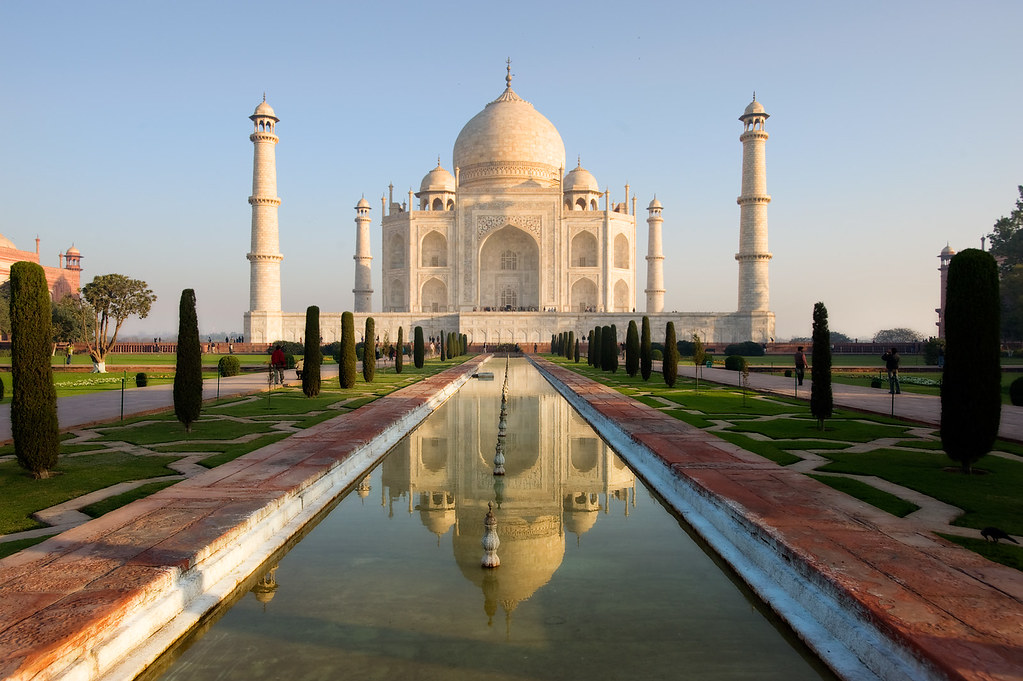
This magnificent tomb, commissioned by the great Mughal emperor Shah Jahan for his loving wife, represents the Mughal empire’s love and brilliant construction.
Also Read – Bizarre & Unusual Architectures: 25 Most Weird Buildings In World
Delhi
12. Qutub Minar Complex
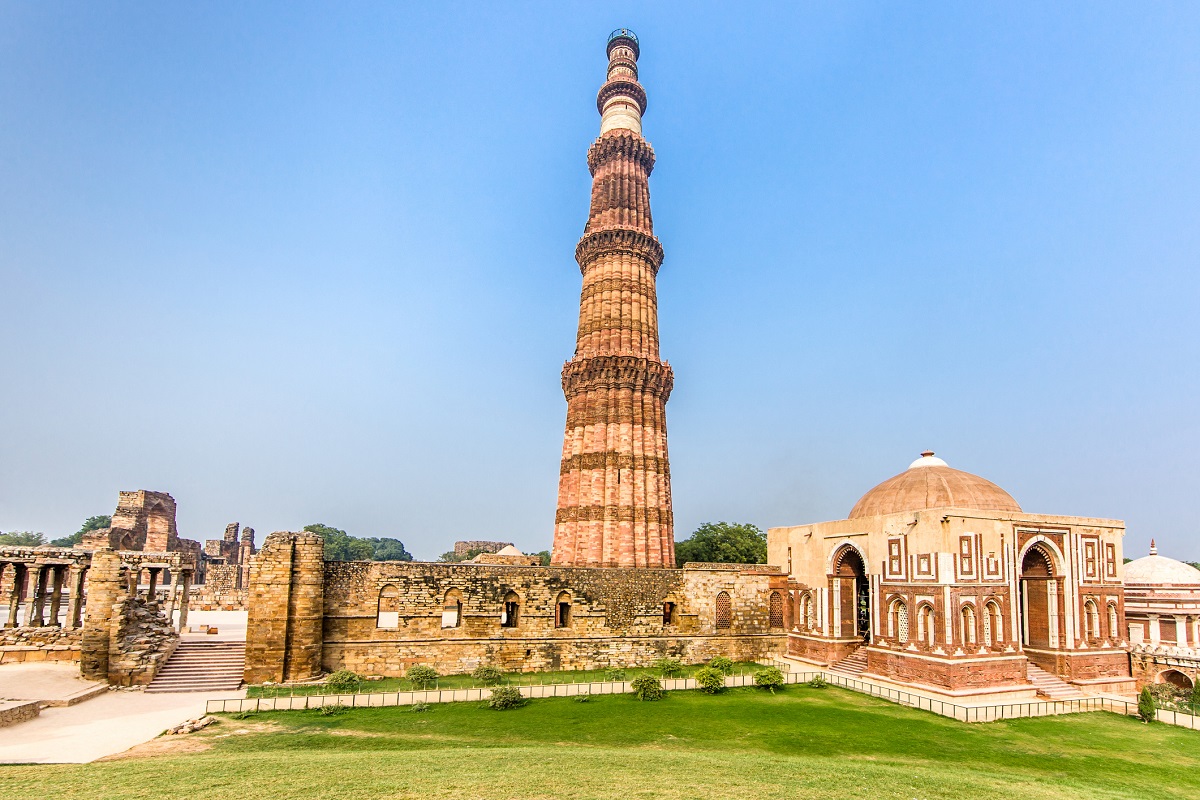
This 5 storey minaret, also known as the Tower of Victory, marks the commencement of Muslim sovereignty in India and is the main attraction of the Qutub complex.
13. Red Fort Complex

This enormous Redstone fort, also known as Shahzanabad, is adjacent to the Salimgarh Fort, which was erected by Islam Shah Suri in 1546 and forms part of the Red Fort Complex.
14. Humayun’s Tomb
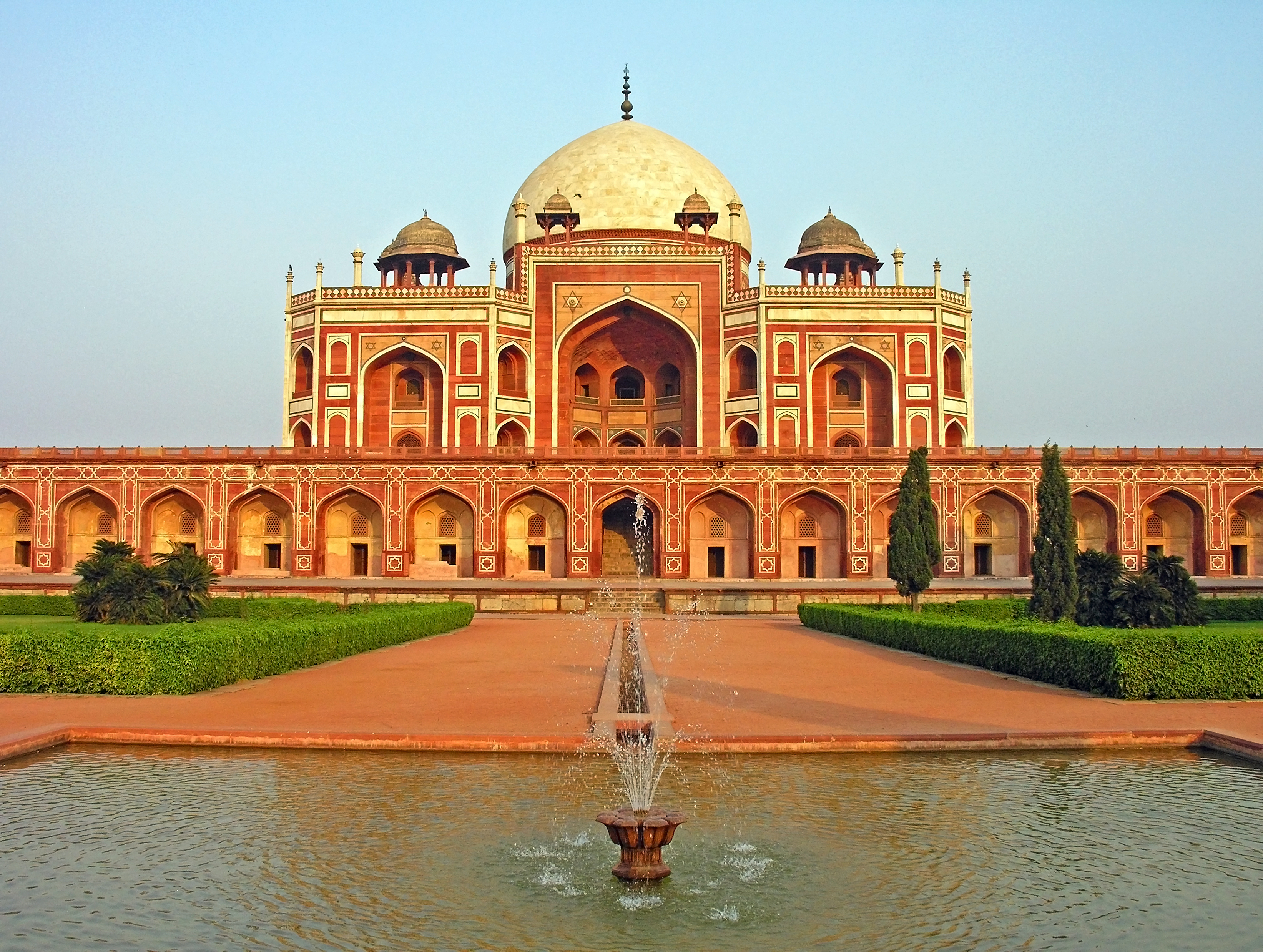
The complete Humayun tomb complex, known as Maqbara-e-Humayun, has over 150 tombs built with red sandstone and white marble domes. The tomb was commissioned by Hamida Banu Begum in 1565 AD.
Rajasthan
15. Hill Forts of Rajasthan

The magnificent Chittorgarh Fort, Kumbhalgarh Fort, which has the world’s second-largest wall, Gagron Fort, which is famous in India for Sati culture, exceptionally beautiful Amer Fort, shimmering golden Jaisalmer Fort, and the ancient fort of Ranthambore is all part of Rajasthan’s Hill Forts.
16. Keoladeo National Park

The Bharatpur Bird Sanctuary, also known as Keoladeo National Park, was designated as a heritage site in 1985 due to its antiquity and diversity of features.
17. Jaipur City
The fortified city of Jaipur is a fantastic site for history aficionados and heritage lovers, with a deep-rooted imprint of cultural heritage, craftsmanship, hospitality, and exceptional culinary tradition.
18. Jantar Mantar
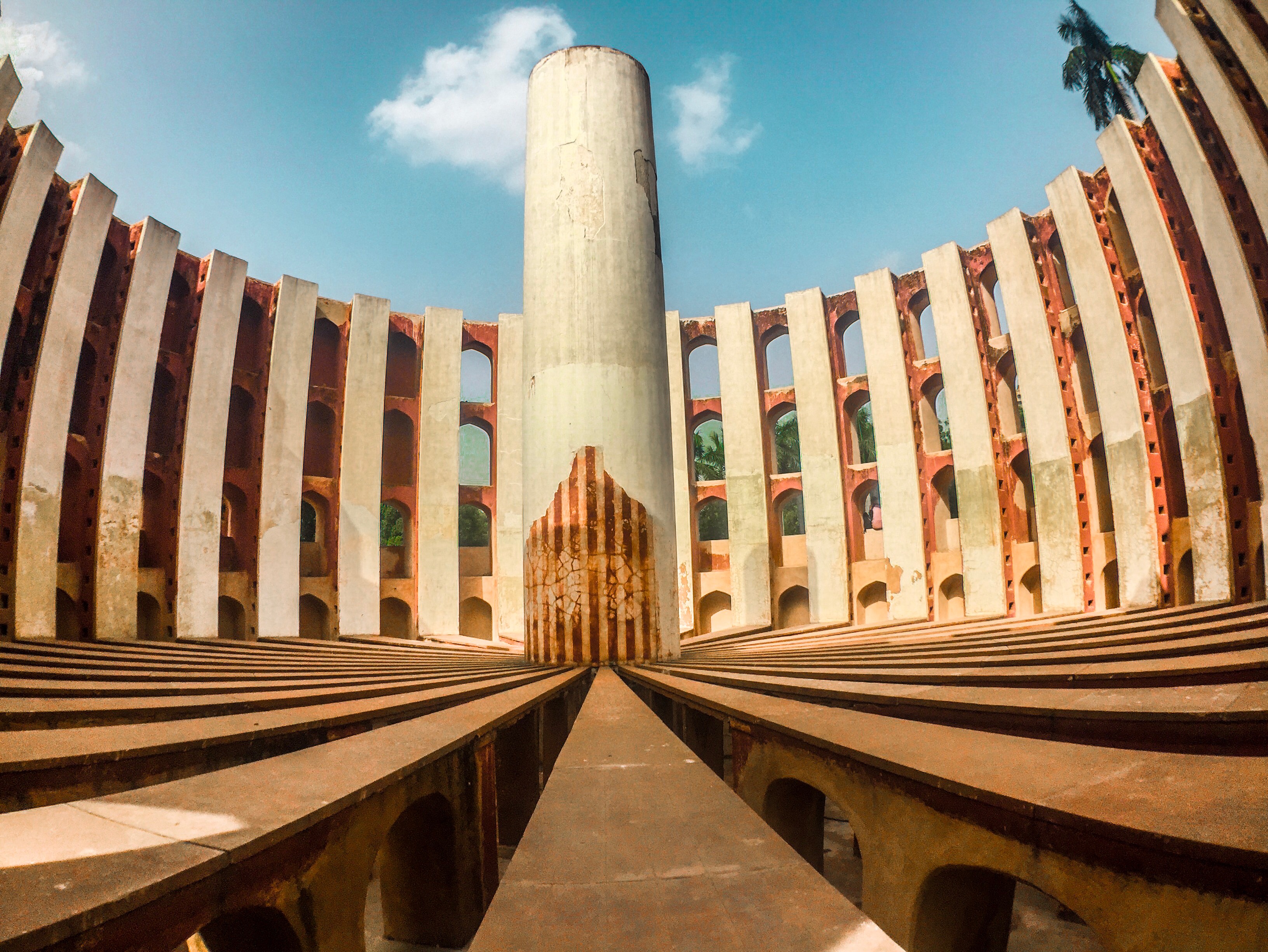
This is one of the world’s largest observatories, with fascinating stone constructions that assist in the analysis of celestial bodies’ locations and the computation of local time.
Gujarat
19. Champaner-Pavagadh Archeological Park
Fortifications, castles, shrines, residential buildings, water retention installations, and the living village of Champaner may all be found on his sprawling heritage site from the 14th and 15th centuries.
20. Historic City of Ahmedabad
The freedom revolution led by Mahatma Gandhi against the Britishers was also observed in Ahmedabad. Despite the urbanization and all of the changes that have occurred over the centuries.
21. Rani-Ki-Vav
To honor her husband, Bhimdev I, Rani Udayamati commissioned this magnificent stepwell. The temple-like stepwell is built in the Maru-Gurjara architectural style.
22. Dholavira
This ancient city is renowned as the well-planned city of the Harappan era. Copper, ivory, semi-precious stone jewelry, and gold decorations discovered during excavation are fine representations of humanity’s legacy.
Bihar
23. Nalanda

From the 3rd century BCE through to the 13th century CE, it was a Buddhist monastery and a center of education.
24. Mahabodhi Temple Complex
For Buddhists, this is a significant sacred site since it is where Mahatma Buddha received enlightenment. For Buddhists, Bodh Gaya is regarded as the holiest pilgrimage site.
Tamil Nadu
25. Chola Temples

Chola architecture, sculpture, painting, and bronze casting are all popular characteristics of this temple.
26. Mahabalipuram
The Mahabalipuram Tower is a feature of this monument. Pallava Dynasty architecture includes open air rock relief, Mandapas, and Chariot Temples.
Karnataka
27. Hampi

The magnificent Dravidian art and architecture will be seen in the ruins of Hampi. Virupaksha Temple is the site’s most important heritage monument.
28. Pattadakal
It is known for its Chalukya architecture, which originated in Aihole and was later merged with Nagara and Dravidian forms.
Himachal Pradesh
29. Great Himalayan National Park
It supports over 375 fauna species and many floral species, including some extremely rare plants and animals such as blue sheep, snow leopards, Himalayan brown bears, Himalayan Tahrs, musk deer spruces, horse chestnuts, and vast alpine meadows. It’s a Himalayan Biodiversity Hotspot.
Odisha
30. Konark Sun Temple

This prominent tourist destination in Odisha was formerly a navigational beacon for sailors in ancient times, and the sailors nicknamed it Black Pagoda because of its black tint.
Uttarakhand
31. Nanda Devi & Valley of Flowers National Park
It is known for the Snow Leopard, Asiatic Black Bear, Brown Bear, Blue Sheep, and Himalayan Monal, all of which are members of the World Network of Biosphere Reserves.
West Bengal
32. Sundarbans National Park
Biosphere Reserve, the largest estuarine mangrove forest, Bengal tiger, and salt-water crocodile are just a few of the attractions of this National Park.
Goa
33. Churches and Convent of Goa

It is known for the First Latin Rite Mass in Asia, as well as the First Manueline, Mannerist, and Baroque art forms in Asia.
Assam
34. Kaziranga National Park

The great one-horned rhinoceroses make up 2/3 of the world’s population. It is home to the world’s highest concentration of tigers, as well as wild water buffalo, elephants, and swamp deer. It is also an Important Bird Area.
35. Manas Wildlife Sanctuary
Project Tiger Reserve, Biosphere Reserve, and Elephant Reserve are all well-known features of this sanctuary.
Sikkim
36. Khangchendzonga National Park

Snow leopards are occasionally seen in the national park, which is known for its animals and flora.
Chandigarh
37. Capitol Complex
As part of a significant contribution to the Modern Movement, it has been designated as a World Heritage Site.
Telangana
38. Kakatiya Rudreshwara Temple
Palampet Village, Telangana, is home to the Ramappa temple. It is assumed that the temple is between 800 and 900 years old. The temple is famous for its lightweight porous bricks, often known as floating bricks.
39. The Western Ghats

Renowned for being one of the world’s top ten “hotspots for biodiversity. Many national parks, wildlife reserves, and reserve forests can be found here.
40. Mountain Railways of India

The Darjeeling Himalayan Railway, Nilgiri Mountain Railway, and Kalka-Shimla Mountain Railway are among India’s mountain railways.
Conclusion
Following the addition of the two sites, India now has a total of 40 World Heritage Sites. The 40 UNESCO World Heritage sites in India include 32 cultural, 7 natural, and 1 mixed property. We hope you might have got an insight into UNESCO’s Heritage Site in India through our article.
For more related posts, visit Discover.
